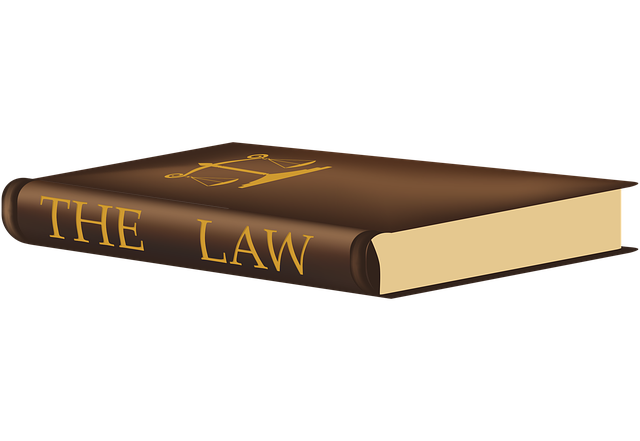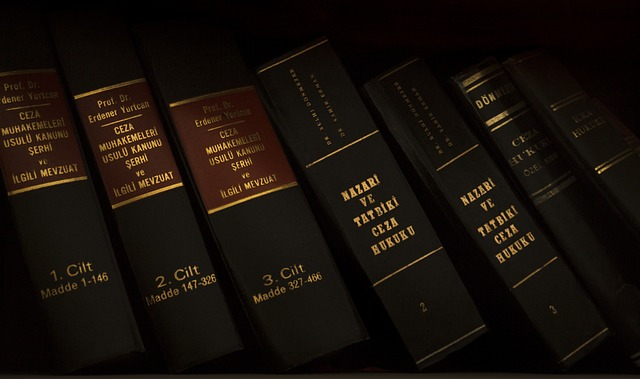In this day and age, it’s almost ironic that lawyers have time to read books. After all, their jobs are filled with reading piles of documents – when would they ever find the time for leisurely reading? Yet, paradoxically, there is a great benefit from taking time out of an already busy schedule to pick up a good book – especially if you’re a lawyer! Reading can help expand your knowledge base and give you insights into legal practice that you may not get elsewhere. If you’re wondering which titles should be on your must-read list as a lawyer, then look no further.
Overview Of Essential Legal Texts
Legal texts are essential for lawyers and students of law. They provide an overview of the legal field, outlining foundational concepts and theories. Knowing which books to read is vital to mastering the basics of the law.
Black’s Law Dictionary By Bryan A. Garner

cc Goodreads
The essential text in any lawyer’s library is Black’s Law Dictionary by Bryan A. Garner. This comprehensive reference provides authoritative definitions for thousands of terms used in American legal practice. It is invaluable for understanding both familiar and obscure words related to the law.
Restatement (Second) Of Torts From The American Law Institute (ALI)

Another must-read title is Restatement (Second) of Torts from the American Law Institute (ALI). This influential treatise outlines major historical tort cases, helping practitioners understand how to apply precedent when making arguments or interpreting statutes.
In addition to providing a general foundation for practicing law, it highlights various areas where specific rules may apply. With its thorough analysis and clear writing style, Restatement (Second) of Torts is an excellent resource for any budding attorney looking to gain insight into their chosen legal profession.
Popular Treatises And Commentaries

“The pen is mightier than the sword.” This proverb encapsulates the importance of popular treatises and commentaries in the legal field. Treatise publications are essential to understanding complex topics, such as criminal or family law, while legal commentaries provide a deeper analysis of case law. Practitioners should utilize these resources when conducting legal research.
Legal commentators often use their expertise to curate practitioner guides that offer insights into statutes, rules, regulations, and judicial decisions. Through this process, lawyers can appreciate how courts interpret laws throughout different jurisdictions. They may also acquire valuable legal writing and case law analysis skills.
By analyzing various sources of information from treatises and commentaries, attorneys can identify best practices for researching relevant issues clients face in their practice areas. Furthermore, studying published works allows them to develop well-rounded arguments about procedural and substantive issues. In short, practitioners must make themselves aware of available resources to navigate any challenge within their scope of practice efficiently.
Guides On Legal Writing & Research

There are several essential books on legal writing and research that every lawyer should read. From guides designed to help lawyers with the basics of legal writing to more in-depth resources focusing on advanced topics such as legal research methodology, there is something for everyone. For those just starting their law career, numerous helpful legal-writing books provide an introduction to the fundamentals of drafting documents like briefs and motions. These resources can be beneficial when it comes time to draft arguments or prepare court filings. For those looking for deeper dives into specific areas of legal research, specialized legal research guides offer step-by-step explanations of various topics related to researching case law, statutes, regulations, etc. Additionally, many scholarly works have been written about the art of legal writing, and these can serve as excellent reference materials when needed. Finally, even experienced attorneys will benefit from reading up on the latest developments in legal writing and research; doing so helps keep one’s skills sharp in this ever-changing field.
Classics From The Law Library
The classics from the law library are a treasure trove of knowledge for any lawyer. From legal treatises to case analysis and beyond – these best books for lawyers offer invaluable insights that every lawyer should consider. Here is a list of 4 must-read classics for lawyers:
Blackstone’s Commentaries on the Laws Of England

This 1765 common law classic by William Blackstone offers an in-depth exploration of English legal philosophy and theory.
The Federalist Papers
Written by Alexander Hamilton, James Madison, and John Jay, this 1788 collection of 85 essays provides insight into how the United States Constitution came to be.
Elements of Law
Thomas Hobbes’ 1640 book examines natural law and political theory against moral relativism.
Restatement (Second) of Contracts
Authored by American Law Institute members in 1979, this book covers contract interpretation rules and their underlying principles based on existing court decisions up until that period.
It’s impossible to deny the importance of these works in forming our modern-day understanding of the law, making them essential reads for any serious attorney or student who wishes to gain a deeper appreciation for legal history and its evolution over time. With that said, it would also be wise to explore more recent additions to this field.
History Of Law Books

Law books have a long and storied history, with authors contributing to the field since antiquity. Many of these authors are now recognized as some of the most influential minds in legal history. In contrast, others remain obscure but important figures whose works still shape modern law. While much debate has been over which works should be included in the canon of great law books, specific titles have stood out for centuries as essential reading for lawyers.
| Law Book | Author | Year Published |
|---|---|---|
| Institutes of Justinian | Tribonian et al | 529 CE |
| The Mirror of Justices | Unknown | 1256 CE |
| Commentaries on the Laws of England | William Blackstone | 1765-1769 CE |
| An Inquiry into the Nature & Causes of Wealth of Nations | Adam Smith | 1776 CE |
| Constitutional History of India | BN Rau | 1945 CE |
These classic law books span genres and eras, from Roman civil codes to Indian constitutional writings. Despite their age, they continue to influence contemporary debates around legal theory and philosophy. Reviews by leading experts throughout history have praised each book’s importance to understanding laws across time and place. Moreover, all are widely considered cornerstones of any lawyer’s library today. In addition to these standard texts, there is an ever-expanding range of resources available that offer unique perspectives on both past and present issues related to law.
Contemporary Publications For Lawyers

Are you looking for the best contemporary legal publications to stay up-to-date on the latest trends and developments in law? Various resources are available for lawyers who want to keep their skills sharp. Lawyer reading lists, reference books, and other resources can help attorneys expand their knowledge base and remain competitive.
Lawyers should prioritize keeping abreast of current legal news, where lawyer reading lists come into play. These curated collections provide an overview of the most relevant materials in various areas of law. For 2020, some popular topics include international business transactions, family law issues, technology in the workplace, and criminal justice reform. Many online sources offer recommendations tailored to individual practice areas or specific jurisdictions.
No lawyer should go without having access to reliable law reference books. Whether it’s a comprehensive treatise or a specialized guidebook, these volumes are invaluable when conducting research or preparing cases. Many publishers also make digital versions of classic texts available at discounted prices; this makes them more accessible than ever!
Now that we’ve discussed contemporary publications for lawyers, let’s move on to journals for professional development – another critical component of staying informed about changes in the field.
Journals For Professional Development

Legal journals are an excellent source of professional development for lawyers. They provide timely updates on current topics and trends in the legal industry and analysis of recent cases and legislation. Here is a list of some great legal journals that every lawyer should consider subscribing to:
Litigation Journal:
A quarterly publication with articles related to litigation law practice, legal issues, and court decisions.
Corporate Law Journal:
Focused on corporate law matters such as mergers & acquisitions, securities regulations, and antitrust compliance.
Public Interest Journal:
It is dedicated to providing resources and information about public interest law and social justice initiatives in the United States.
These publications can help keep lawyers abreast of new developments within their field or specialty area so they can stay ahead of the curve. Additionally, reading these journals provides insight into how other attorneys approach problems which can lead to better problem-solving skills when dealing with clients’ unique needs.
Must-Reads For Litigators
Picture a lawyer in the courtroom, armed with books. Not just any ordinary books; but an arsenal of legal knowledge and litigation strategies to help win their case. In short, this is what many lawyers and every litigator needs: A Litigator’s guide!
Here are some essential reads for all aspiring or seasoned lawyers seeking to brush up on their courtroom procedures, leadership skills, and litigation techniques.
The Litigation Process By Stephen P. Parsons

cc Amazon
The Litigation Process by Stephen P. Parsons provides readers with a comprehensive overview of civil procedure from pre-trial through post-trial stages. This book helps attorneys understand how judges think when making decisions and offers helpful advice on improving your approach to each trial stage. It also includes tips for working effectively with co-counsel and opposing counsel during the process.
Robert Leflar’s Lawyer’s Strategy Book For Winning Cases

This guidebook contains practical advice to help you create effective litigation strategies tailored to your own law firm client’s situation. Additionally, it guides how to use motion practice to control evidence presented at trial and suggestions for using depositions and interrogatories effectively during the discovery phase.
Trial Tactics & Strategies By Michael Eagan

Trail Tactics & Strategies by Micheal Eagan focuses primarily on helping attorneys prepare for trials by offering step-by-step instruction in planning strategy, examining witnesses, and delivering closing arguments – everything needed to win more cases! With its straightforward approach, it can be used successfully even by inexperienced practitioners who need assistance navigating the complexities of the legal system.
Recommended Reading For Corporate Attorneys

A resourceful legal reading list can be essential for corporate attorneys’ success. Corporate lawyers should equip themselves with knowledge about the industry to better serve their clients, and these books offer insight into some of the most critical aspects of corporate law. Here are three recommended reads specifically geared toward those in the field of corporate counsel:
The Practitioner’s Guide To Corporate Law by James R. Silkenat & Terence P. Stewart
This book features comprehensive coverage of all areas of business law, including mergers and acquisitions, capital markets transactions, banking law, securities law firms, regulation, antitrust matters, and more. It is an invaluable reference guide that every corporate attorney will find helpful.
Business Associations: Cases And Materials On Agency Partnerships And Corporations by William A. Klein
This casebook provides an excellent introduction to business associations from a theoretical and practical perspective. It covers topics such as agency partnerships, limited liability companies (LLCs), corporations, fiduciary duties, and much more – making it ideal for any practicing or aspiring corporate lawyer who needs to quickly understand the fundamentals of this area of law.
Fundamentals Of Corporate Governance: A Guide For Directors And Corporate Counsel by Ronald J. Gilson & Jeffrey N Lefstin
Written by two prominent professors at Stanford Law School, this book offers up-to-date guidance on how directors and general counsel can best manage companies while adhering to fiduciary duty principles outlined in state laws and regulations governing public corporations across the United States. In addition to providing valuable insights into corporate governance issues facing today’s businesses, it also contains practical advice on preventing costly lawsuits against company officers and directors.
Selections For Public Interest Attorneys
Public interest attorneys often have unique responsibilities requiring them to be well-versed in law and public service. A great example of this is pro bono lawyers, who provide free legal assistance to those unable to afford it. To best serve their clients, these professionals must stay abreast of new developments in public interest law. For instance, many public interest readings address issues related to immigration rights or environmental justice.
To help equip public interest attorneys with the skills necessary for success, there are several essential books every lawyer should read. One such book, “The Lawyer’s Guide to Pro Bono Service,” provides an overview of how lawyers can use their expertise to benefit others through pro bono work. Additionally, “Pro Bono: The Essential Guide” offers advice on how lawyers can maximize their impact while minimizing costs associated with pro bono service. Finally, “Reforming Our Legal System: A Public Interest Primer” explains how laws affect everyday people and what steps must be taken to ensure fairness and equity within the legal system.
These resources offer invaluable insight into the complexities of working as a public interest attorney. They are excellent starting points for any lawyer interested in furthering their knowledge. With a comprehensive list of guidance from client relations to litigation strategies, reading materials like these will help equip public interest attorneys with all they need to know to excel at providing quality legal services for those most vulnerable populations.
Is There An Online Library Where I Can Access Legal Books?
The question of finding legal books online has become more pertinent than ever before. Like a lighthouse at night, many people wonder whether there is an online library to access and read legal books easily. Whether you’re looking for law ebooks or novels related to legal topics, having an online reading library can be invaluable.
Finding good sources when accessing legal books can often seem like searching for buried treasure – but have no fear! Many available resources provide access to legal books and other helpful information regarding the subject matter. For example, some websites offer free legal book libraries where users can search through various titles and find what they need without the hassle. These sites may also provide additional services, such as reviews and ratings from previous readers who have used the service.
If you’re looking for a reliable source of online legal books, look no further – countless sites offer precisely what you need. Many of these websites will even let you download their ebooks directly onto your computer so that you don’t have to worry about waiting for physical copies to arrive at your doorstep. Furthermore, most of these websites offer discounts on bulk orders, making buying multiple titles much more affordable than purchasing individually. So why wait? Get searching today and start discovering all the great legal book libraries available online!
Is There Any Use Of Books Written By Legal Professionals Specifically For Law Students?
The sun sets beyond the horizon, symbolizing hope and growth for law firms and aspiring legal professionals. Books are the building blocks to success in any field, especially law; books written by legal professionals specifically for law students can provide insight into the complexities of this noble profession. Aspiring lawyers must seek out these resources to achieve their goals.
Written legal books offer an opportunity to learn from those before us and gain valuable knowledge on practicing law ethically and effectively. They provide information on various topics such as case analysis, research methods, interviewing techniques, and other relevant skills needed to be successful as a lawyer. By understanding what is expected of them within the court system, young attorneys will be better equipped to handle challenging situations when they arise.
These books can also be an essential resource during internships or clerkships, helping students understand the intricacies of working with clients and engaging in professional relationships with colleagues. Furthermore, reading material directed explicitly towards law students allows them to stay up-to-date on current trends in their field and become familiarized with cutting-edge technologies used in modern-day courts and practices.
Thus, future lawyers must thoroughly explore all sources at their disposal to confidently enter the world of legal practice armed with knowledge and expertise gained from experienced practitioners.
About Us
So where does A&F fit into all of this? To break it down for you, our agency specializes in developing unique and highly effective people legal marketing strategies to help you stand out in the competitive legal market and attract more clients to your practice.
Please chat with our expert bankruptcy web design designers today and get a fully SEO-friendly website design that will build your online presence and increase your chances of getting through to your next potential customer. Book a free consultation with us!
What Do We Recommend?
Reading legal books is an essential part of being a lawyer. It’s not something you should take lightly or do sporadically; it must be done regularly to stay ahead of the competition and up-to-date with the latest legal news and trends.
From online libraries where you can access hundreds of different law books to specific titles geared toward passing the bar exam or honing your ethical acumen as an attorney, thousands of options await you to explore.
In short, if you’re serious about becoming a great lawyer, reading should be at the top of your list regarding professional development. It will give you an edge over the competition and open new doors for deeper understanding and insight into what makes a successful practitioner in today’s ever-changing legal landscape. So don’t wait for another second – get out there and devour those vital books!
Frequently Asked Questions
How Often Should I Read Legal Books?
The amount of legal-studies-reading also depends heavily upon each person’s capacity to understand dense material quickly versus slowly processing information over more extended periods. Additionally, different law courses require varying levels of detail regarding readings; some may need summarization, while others require complete analysis and synthesis. Students must determine their approach based on the law text reading required for each course and their personal learning style preference.
Regardless of what type or how much legal reading must be done, everyone should prioritize ensuring all topics are adequately understood before moving on to another section or chapter within any given book. Taking breaks between sessions helps with efficient comprehension so that knowledge gained during one session isn’t lost by rushing through too quickly into something new without fully grasping previous concepts.
Are There Any Specific Books I Should Read To Pass The Bar Exam?
The answer is yes! Several publications on legal bar preparation and strategies for passing the bar exam are available. While no single book will guarantee success, understanding critical concepts such as evidence law, constitutional law, contracts, and civil procedure can improve your chances immensely. Reading books related to these topics gives you a better chance of acing your test-taking skills and mastering each subject area.
When selecting a book or other resource geared towards passing the bar examination, it is essential to consider factors like availability and cost. A good starting point would be to consult online reviews from previous users who have taken the same type of exam before you. Additionally, many libraries offer free access to practice materials related to the bar exam and helpful advice from experienced attorneys or professionals who have already taken the test successfully.
Are There Any Books That Focus On Legal Ethics?
When it comes to legal ethics, there are several books that lawyers should read to understand the moral obligations they have in their practice. These books focus on ethical issues in law, as well as provide guidelines for lawyers when making decisions related to their practice:
A Treatise on Legal Ethics – by Lawrence Fox
Ethical Obligations and Decision-Making in Accounting – by Steven Mintz
Lawyers’ Professional Responsibility – by Roberta Ramo
The Lawyer’s Guide to Professional Conduct – by Stephen Gillers

